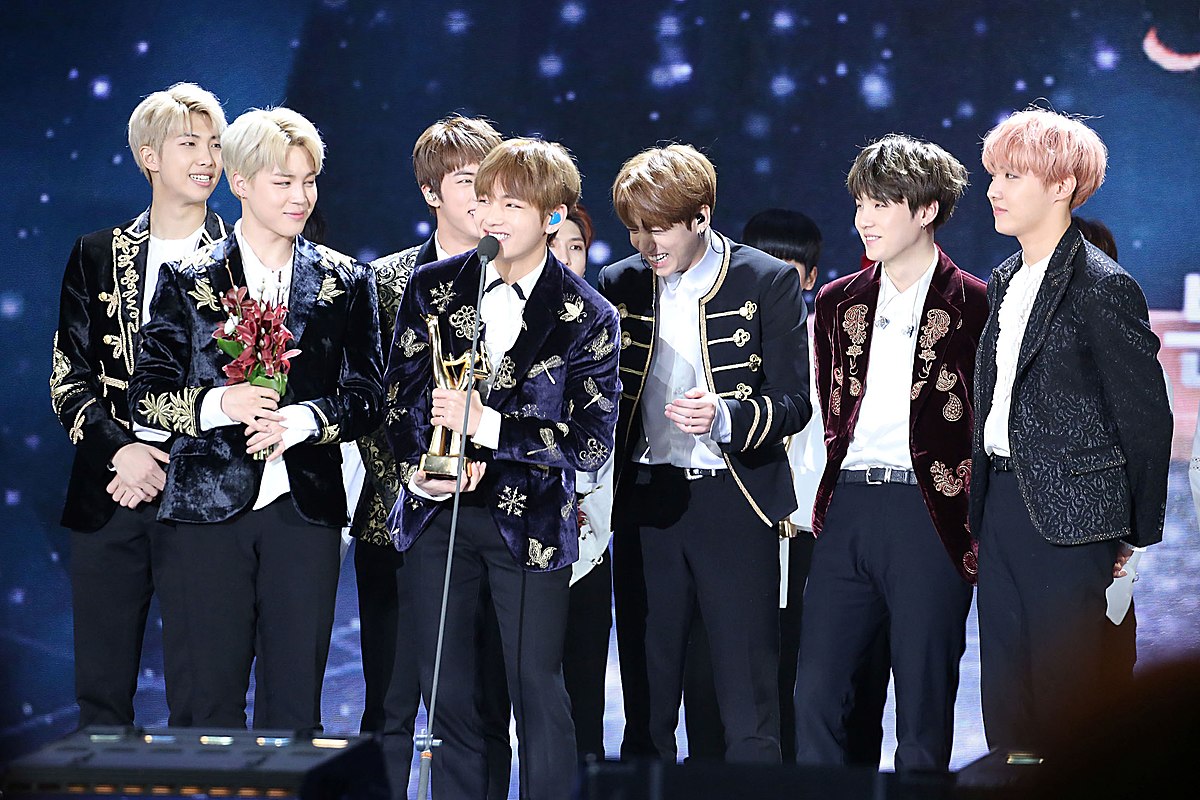“I like K-Pop.”
Say those magic words and cue in the entitled millennial “cool kid” and sensitive boomer that will take this as an open invitation to criticize and impose their views on another person’s music taste.
You’ll probably hear the words “K-Pop is trash. Just a bunch of pretty boys and girls dancing in weird clothes and singing lyrics you won’t understand.”
And “Oh, I only like names a.) probably some rock band, b.) older artist, or maybe even c.) classical musician. K-Pop lovers have no class or culture”.
In retrospect, those opinions are nothing but a display of classless disrespect on other people’s culture. Simply, xenophobia disguised as music criticism.
Because they don’t understand the language, these people assume it’s just catchy songs with shallow meaning.
They insult male idols calling them girly or gay because they wear makeup, as if makeup wasn’t invented by men for men once upon a time, and when literally every male artist that goes on a show or shoots a video wears makeup. Not to mention the fact they say “feminine” is if it were an insult. Homophobia joins the group.
Anyway, for those new to K-Pop they may think that its some weird fad that just blew up overnight.
It’s not. It’s literally a music culture native to South Korea and has been existing since the early ‘90s. Over the years it has spread to countries all over Asia, and then into the west where it eventually gained recognition in mainstream music.
I have been listening to K-Pop since 2009, which probably makes me a grandmother of the said music scene. I will admit that I am not an expert on the whole thing, nor am I a super fan. I do not know every group or song that there is and has been.
I am not obsessed with it, but I appreciate the music. As someone who took film production and visual design classes, I love their high-quality music videos. I like that BTS was injecting philosophy and Nietszche in one of their MV.

I like that it’s fresh, and I recognize the amount of hard work these people put in to execute complex dance choreos. I like listening and watching K-Pop since discovering it sometime in 2009. Now with 11 years of “experience” with KPOP (and I wish I can write that in my resume), I’ll share some of my thoughts on the subject matter.
Demand for music = supply, not invasion by foreign acts
Now, I’ve seen salty people on the internet and in real life rant about K-Pop saying that it is “invading” mainstream music, which is IRONICALLY coming especially from westerners. The same people whose forefathers colonized other lands, introducing their culture to the natives while they destroy the former’s. (But that’s besides the point.)
Looking at it at another point of view though, K-Pop can stand alone as an act in SK, but people from other races who did not even speak the language took interest in it and told their friends who told their friends, and maybe even told their moms, “Hey, I’m listening to this new music which I don’t understand but it’s super amazing”.
Gradually, the number of people who wanted to hear this music grew so large that K-Pop eventually was being played, shared and sold outside of South Korea. Supply and demand. But when you think about it well enough, isn’t it US that “invaded” their music scene, liked it and demanded more.
Isn’t it that we the foreigners are the ones partaking from or sharing their culture? Let that sink in.
And with regards to criticism, I think its fine to critique anything. But if one would so, they should always have thorough knowledge on the subject.
I recently randomly read this op-ed article from a news site on the internet criticizing a boy-band whose albums are titled “Love yourself: Answer” and “Map of the Soul: Persona” because they apparently “encourage fans to seeing themselves as the centre of the universe… further encouraging narcissism”.
This “journalist” criticized a song sang in a language he doesn’t speak from a band he knows nothing about, because of an album named Love Yourself, and used this as an excuse to attack a two whole generations (Millennials and Gen Z) for listening to music that encouraged them to love yourself.
It’s okay not to like it
Bottom line. I’m not telling you to like this kind of music. Aside from K-Pop, I listen to different genres of music. So, if you think it’s just not your cup of tea, then everybody should respect that. But K-Pop also deserves respect. Korean artists who trained for years and have worked hard to become idols, deserve respect.
Literally any artist from of any nationality outside of ours deserve respect. (Unless of course, they are a–holes, if then, they deserve to be called out.)
Music is music, regardless of when or where it’s from. Anyone can write a very horrible song, but if they love it truly and passionately, who are we to crap on other people’s art?

